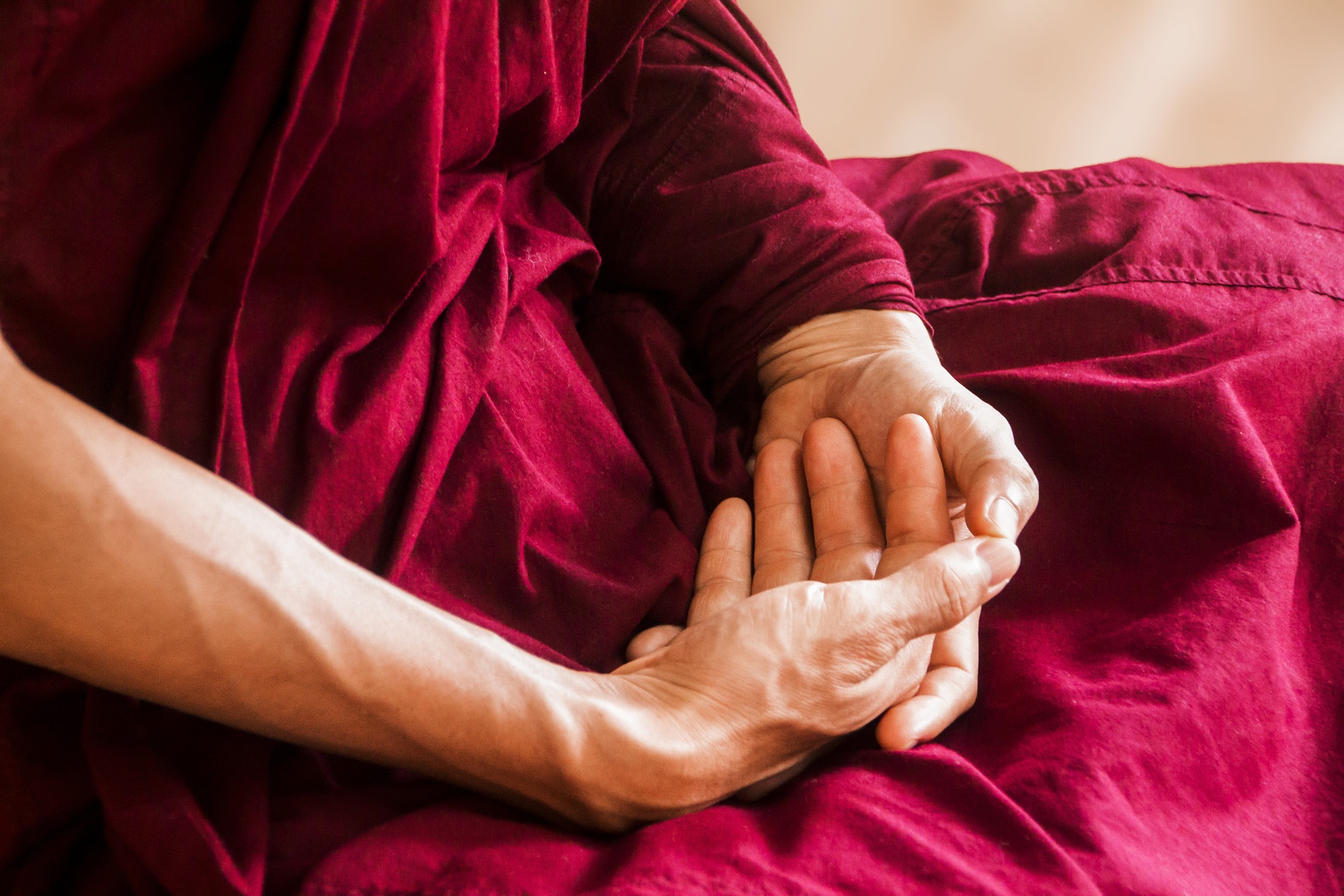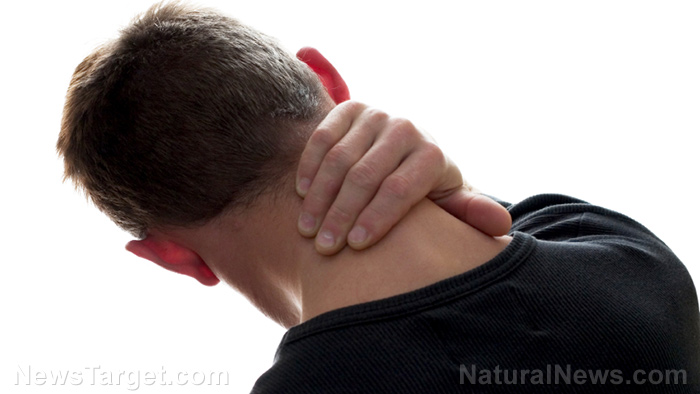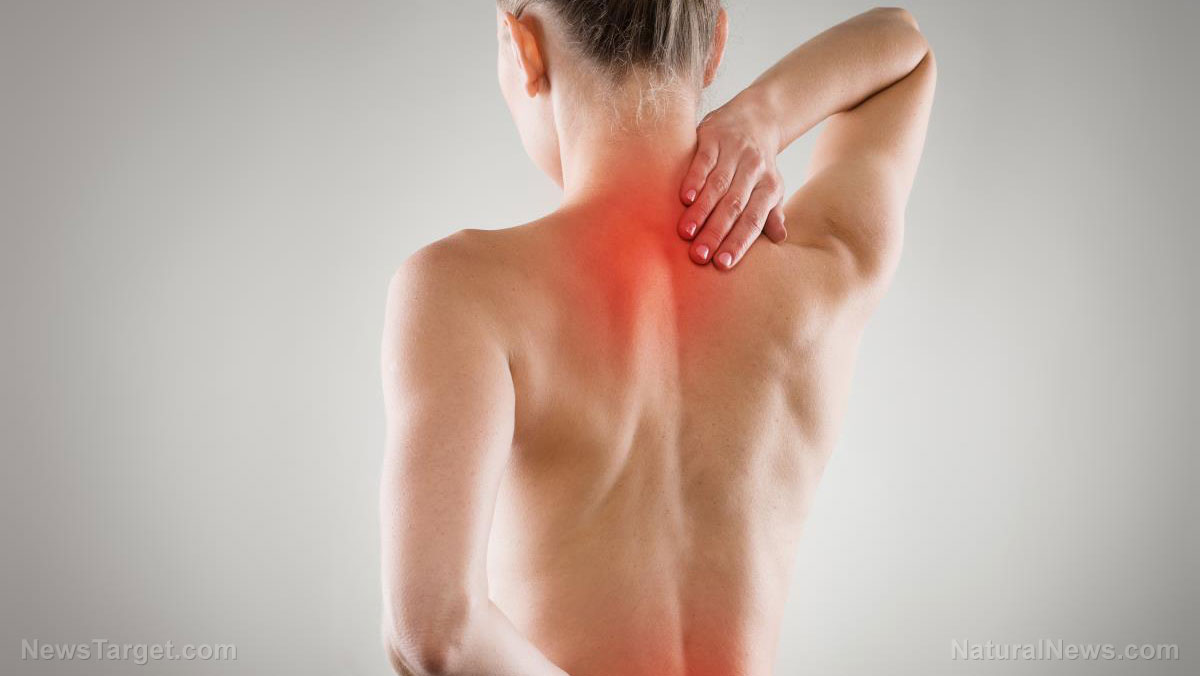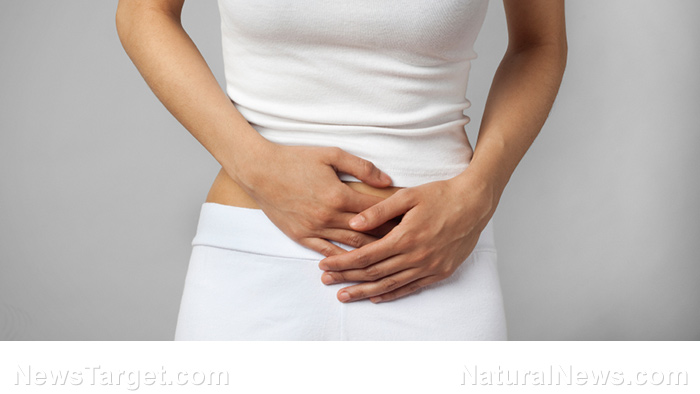Alleviating the pain of lumbar disk herniation with acupuncture
01/06/2019 / By Edsel Cook

There have been many studies that investigated the use of acupuncture to alleviate intense pain caused by all kinds of diseases and injuries. One of the recurring targets of the traditional Chinese treatment is lumbar disk herniation.
More commonly known as a “slipped disk” or “ruptured disk,” lumbar disk herniation is the painful instance when one of the disks that comprise the spinal cord bulges toward the spinal canal. When this slip occurs, the tough outer wall of the spinal column gets ruptured.
This injury commonly takes place in the lower back. It is a common reason for chronic lower back pain, as well as a factor that causes painful sensations in other parts of the body.
To relieve the pain caused by this condition, most patients are advised to take analgesic drugs like diclofenac sodium, ibuprofen, and meloxicam. Others turn to less conventional treatments like lumbar traction and herbal remedies. (Related: Scientists identify a natural pain relief remedy in traditional Yucatan medicine.)
Looking for evidence to support acupuncture’s effect on slipped disks
Researchers from Jinan University (JNU) evaluated the efficacy of acupuncture when it came to relieving the pain caused by lumbar disk herniation. They canvassed a number of prestigious electronic databases for studies that applied the traditional Chinese medicine to patients with this particular lower back injury.
After eliminating all unrelated or insufficiently applicable studies, they were left with 30 different randomized controlled trials (RCTs). When the participants of all those trials were added up, the patients totaled 3,503.
In addition to acupuncture, the trials used a number of other treatment modalities. Standalone pharmaceutical drugs included diclofenac sodium, ibuprofen, and meloxicam. Drugs taken in combination with others were dexamethasone, ibuprofen, loxoprofen, mannitol, and mecobalamin.
Alternative medical treatments included lumbar traction and two health supplements derived from traditional Chinese medicine. The latter were fugui gutong, which is an anti-inflammatory supplement, and a decoction of the huoxue zhitong mixture.
The researchers used statistics software to meta-analyze the results of the 30 RCTs. Furthermore, they used the Grading of Recommendations Assessment, Development, and Evaluation (GRADE) methodology to evaluate the level of evidence presented by each trial.
Acupuncture shown to alleviate the symptoms of lumbar disk herniation
According to the statistical meta-analysis of the RCT results, acupuncture outperformed lumbar traction, ibuprofen, diclofenac sodium, and meloxicam. Acupuncture displayed a higher total effective rate when it came to decreasing the pain caused by a slipped disk.
The visual analogue scale (VAS) measures a characteristic that is difficult to directly evaluate, such as the vague descriptions of pain and relief. Based on this scale, acupuncture did better than lumbar traction and diclofenac sodium in treating patients with lumbar disk herniation.
The Japanese Orthopaedic Association (JOA) score is used to determine the level of clinical symptoms found in spinal conditions like cervical compressive myelopathy and ruptured disks. Acupuncture achieved a better JOA score than lumbar traction, a drug-free orthopedic method used to readjust the spine and improve the lower back.
Five separate RCTs also compared acupuncture’s total effective rate to five different combinations of pharmaceutical drugs and herbal remedies. These multi-drug approaches included fugui gutong supplementing the analgesic ibuprofen, and huoxue zhitong supporting the osmotic diuretic mannitol.
Last but not least, two additional trials compared the VAS scores of acupuncture against either ibuprofen or a combination of mannitol and dexamethasone. In all of these trials, acupuncture achieved higher total effectiveness and great pain-relieving effects.
The JNU review concluded by suggesting that acupuncture is an effective means of treating the symptoms of lumbar disk herniation. It also recommends new randomized controlled trials with larger numbers of participants to verify these findings.
If you are looking for drug-free means of relieving pain, ChineseMedicine.news can teach you about alternative analgesics.
Sources include:
Tagged Under: acupuncture, acupuncture pain relief, Alternative health, alternative medicine, analgesic, back pain, drug-free treatments, healing, lower back pain, lumbar disk herniation, natural medicine, pain relief, traditional Chinese medicine


















